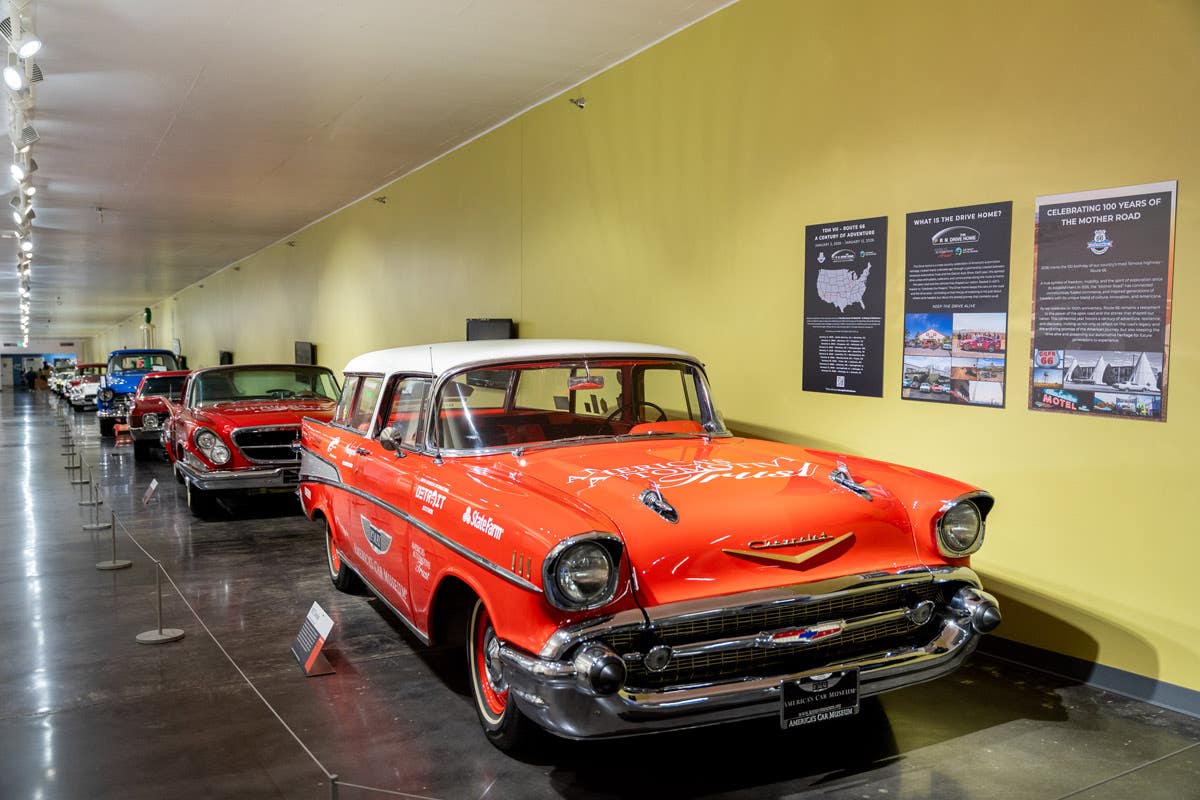Conspiracy Debunked: Barrett-Jackson Reaches Settlement with Angry ‘Cuda Owner
Did Barrett-Jackson intentionally cut short the sale of David Clabuesch’s ’70 Hemi ‘Cuda at last year’s Arizona auction, resulting in a lower sale price? Did Mr. Clabuesch chain the tires of the ‘Cuda to prevent the new owner from taking the car home? Was Elvis actually hiding in the trunk of the car? Inquiring minds want to know.
Did Barrett-Jackson intentionally cut short the sale of David Clabuesch’s ’70 Hemi ‘Cuda at last year’s Arizona auction, resulting in a lower sale price? Did Mr. Clabuesch chain the tires of the ‘Cuda to prevent the new owner from taking the car home? Was Elvis actually hiding in the trunk of the car?
Well, nearly a year later, the matter seems to have been settled and the seller’s conspiracy theories dismissed—although many of the details surrounding this interesting incident will remain sealed under the terms of a recent settlement agreement.
If you recall, Clabuesch, angered over the final selling price of his car ($300,000 in a sale that lasted just over two minutes), raised allegations against the auction company claiming it had “short hammered” the sale of his car at its 2007 auction, resulting in a lower sale price. He also allegedly later claimed that the buyer of his car and the auction company were somehow in cahoots.
In an interview last March with the Scottsdale Republic, Calbuesch stated that the car should have fetched nearly $1 million, more three times what the car sold for at the 2007 Barrett-Jackson auction.
Barrett-Jackson later filed a lawsuit against Clabuesch, who just happens to be a probate court judge in Mich., in U.S. District Court in Arizona citing his "outrageous and defamatory actions.”
According to a press release issued recently by Barrett-Jackson, Mr. Clabuesch has now recanted these and other allegations he made last year following Barrett-Jackson’s January auction in Scottsdale, Ariz.
According to the suit, outraged over the final selling price of his ’70 ‘Cuda, Clabuesch chained the tires of his car to prevent the buyer from taking possession after it left the auction block and proceeded to post derogatory signs around the car, expressing his opinion of the auction company and its practices.
Shortly after the January 2007 incident, the company claims that it was forced to respond to numerous defamatory rumors, conspiracy theories and untrue statements related to the Clabuesch incident, which were published on various Web sites, blogs and online chat rooms.
Apparently Clabuesch is now willing to admit that maybe things got a little out of hand last year. According to the press release, the disgruntled seller has signed a statement as part of a settlement deal stating that he could “no longer pursue any action alleging auction irregularities, including the claim that the car was short hammered while on the block.”
Details of the financial terms of the settlement were not disclosed.
“We’re pleased to have reached a successful resolution and to put this matter behind us,” said Steve Davis, president of Barrett-Jackson in the press release. “While we regretted having to take the extreme step of filing a lawsuit in this matter, we had no choice but to aggressively defend our integrity and the fairness of our company’s business practices. This action was necessary to protect not only our own interests, but also those of the thousands of bidders and consignors who place their trust in us each year.”
The full text of the Barrett-Jackson press release can be viewed below.
SCOTTSDALE, Ariz. – January 9, 2008 – Officials with the Barrett-Jackson Auction Co. LLC, today announced that a settlement was reached on Jan. 7, 2008, in a suit filed against David L. Clabuesch in U.S. District Court in Arizona. In the settlement, Clabuesch exonerated the Barrett-Jackson Auction Company of all allegations of wrongdoing in relation to a situation that occurred at the company’s Scottsdale event in January 2007. Details of the financial terms of the settlement were not disclosed.
“We’re pleased to have reached a successful resolution and to put this matter behind us,” said Steve Davis, president of Barrett-Jackson. “While we regretted having to take the extreme step of filing a lawsuit in this matter, we had no choice but to aggressively defend our integrity and the fairness of our company’s business practices. This action was necessary to protect not only our own interests, but also those of the thousands of bidders and consignors who place their trust in us each year.”
The lawsuit arose from circumstances surrounding the sale of Clabuesch’s vehicle at Barrett-Jackson’s January 2007 Scottsdale auction. Unhappy with the price paid for the vehicle, Clabuesch locked and chained the tires after it was sold, and attempted to prevent delivery to the new owner. Clabuesch also posted numerous signs in and around the vehicle expressing his opinions about Barrett-Jackson and the company’s auction practices. Visible in one of the most high traffic areas of the auction site until removed by the company’s security officer and local police, the signs were viewed by the company’s customers and members of the public attending the event. Shortly after the January 2007 incident, the company was faced with responding to numerous defamatory rumors and untrue statements related to the Clabuesch incident, which were published on various Web sites, blogs and online chat rooms.
A settlement was mediated on Jan. 7, 2008, by former Superior Court judge Rebecca Albrecht. In connection with the settlement, Clabuesch issued a written, notarized statement that reads:
“Upon review of auction video footage and further consideration of the relevant facts, I, David L. Clabuesch, have concluded that with respect to the January 20, 2007, auction of my vehicle – a 1970 Plymouth Hemi-Cuda – conducted by Barrett-Jackson that I can no longer pursue any action alleging auction irregularities, including the claim that the car was short hammered while on the block. I have also determined that there was no relationship between Barrett-Jackson and the buyer of my vehicle, nor was there any conspiracy between Barrett-Jackson and the buyer of my vehicle, or any other person, to short hammer the sale of the car. I no longer believe that Barrett-Jackson violated the terms of the consignment agreement in conducting the auction sale or otherwise breached any duties to me as a consignor.”
Davis concluded, “On the brink of the most exciting automotive lifestyle event in our history, we’ve demonstrated that Barrett-Jackson upholds the most ethical business practices in the collector car auction industry and that we will take the steps necessary to defend those practices when we are compelled to do so.”








